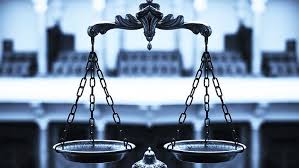Justice Between Men and Women in Islam

A Comprehensive Vision
Introduction
The debate over gender relations continues to evolve in modern times, with growing questions about whether Islam truly grants women their due rights. Often, Islamic texts are misunderstood when interpreted through the lens of absolute equality, neglecting the deeper philosophical and spiritual framework on which Islam is built. Discussing justice between men and women in Islam, therefore, requires a comprehensive understanding that goes beyond legal rights to encompass the ethical, social, and structural vision of the religion.
1. The Concept of Justice in Islam
Justice in Islam is not a numerical or mathematical concept based on rigid equality. Rather, it is an ethical and human value rooted in giving each individual their due and placing things in their proper context. Justice acknowledges natural differences in responsibilities, capabilities, and roles. As such, justice may sometimes lead to equality and at other times to legitimate differentiation—always grounded in fairness and wisdom.
2. Justice vs. Equality
A common misconception is the conflation of justice with equality. While absolute equality seeks uniformity regardless of differences, justice in Islam strives for balance by recognizing human diversity. Islam does not reject equality in dignity or spiritual worth between genders but rejects imposing identical roles or expectations upon different natures. Justice, in this sense, is about proportional fairness, not numerical sameness.
3. Islam’s View of the Two Genders
Islam does not portray men as superior to women or vice versa. Instead, it views them as complementary beings, equal in origin, spiritual capacity, moral responsibility, and accountability. Each is assigned roles suitable to their natural dispositions—not to oppress, but to maintain balance and stability. For example, male guardianship is a duty with financial and protective obligations, not a privilege of power.
4. Justice in Personal and Social Rights
Women in Islam enjoy full legal independence—they may own, sell, buy, and manage their wealth without male guardianship. They are also entitled to education and employment, within guidelines that protect their dignity. Socially, women throughout Islamic history have been scholars, merchants, reformers, and active contributors to public life. Justice in Islam does not isolate women but engages them responsibly in society.
5. Justice Within the Family System
The family serves as the primary domain for the application of justice between genders. While Islam places the responsibility of financial maintenance on the man and grants him certain privileges such as divorce rights, these are bound by strict conditions to prevent abuse. Simultaneously, women have legal recourse through khulʿ (divorce initiated by the wife) or judicial separation in cases of harm. Custody is granted to whoever is more suitable for child welfare—often the mother in early childhood—demonstrating Islam’s child-centered and justice-oriented approach.
6. Gender Equality in Legal Accountability
Islamic criminal law enforces equal legal accountability regardless of gender. Men and women are equally liable for criminal acts and subject to the same penalties when guilt is proven. The application of penalties considers individual circumstances, ensuring that justice is personalized and not gender-biased.
7. Justice in Inheritance
Much debate surrounds Islamic inheritance laws, particularly claims that women always receive less than men. However, Islamic inheritance is based on financial responsibility, not gender. Men are legally obligated to provide for their families, whereas women are not—even for themselves if under the care of a guardian or husband. Therefore, in some cases, men inherit more due to the duties they must fulfill with that wealth.
Examples Where Women Inherit More or Equally
Contrary to popular belief, women do not always inherit less than men. In fact, in many cases, they inherit more or the same. Consider the following examples:
-
Case 1: Deceased leaves a wife and both parents
-
Wife inherits 1/4
-
Father: 1/6
-
Mother: 1/6
→ The mother inherits the same as the father.
-
-
Case 2: Deceased leaves a daughter, father, and mother
-
Daughter: 1/2
-
Mother: 1/6
-
Father: receives the remainder (only 1/3)
→ The daughter inherits more than the father.
-
-
Case 3: Deceased leaves two daughters, father, and mother
-
Two daughters: 2/3 jointly
-
Mother: 1/6
-
Father: remainder (1/6)
→ The daughters together receive more than the father.
-
These examples illustrate that Islamic inheritance laws are not based on gender discrimination but on a broader, fair system that takes financial obligations into account.
8. Responding to Western Criticism
Some critics from Western paradigms view Islamic gender roles as discriminatory. However, such criticisms often neglect the broader context of complementary roles and overlook the crises of identity, family disintegration, and objectification of women prevalent in many Western societies. Islam’s approach may not conform to modern liberal frameworks but offers a sustainable model that values dignity, responsibility, and social coherence.
9. Historical Examples of Justice for Women in Islam
Islamic history is rich with female figures who thrived in environments of justice and empowerment. Women served as scholars, legal experts, entrepreneurs, and leaders in various fields. Their opinions were sought, their roles respected, and their rights preserved. This historical reality stands as testimony to the practical application of gender justice in Islamic civilization.
10. Justice in Modern Contexts
Even in today’s rapidly changing world, Islam’s concept of justice remains relevant. While many women around the globe still face inequality, exploitation, and violence, Islam proposes a balanced model that protects women’s identity and values their societal contribution. The challenge for Muslim societies today is not to rewrite these values but to implement them in ways that are faithful to the principles and responsive to modern needs.
Conclusion
Justice between men and women in Islam is neither an abstract ideal nor a rhetorical claim; it is a foundational principle reflected in divine guidance, legislation, and historical practice. Rather than being measured against superficial standards of uniformity, this justice must be understood within Islam’s ethical and spiritual framework, where responsibility, capability, and balance are the core values. It is through this lens that a fair and humane society can be built—one that upholds the dignity of both men and women, not through rivalry, but through harmony.
Keywords:
Gender justice in Islam, women’s rights in Islam, gender equity, Islamic law and women, inheritance in Islam
References
-
Al-Qaradawi, Yusuf. The Status of Women in Islam. International Islamic Publishing House, 1998.
-
Badawi, Jamal. Gender Equity in Islam: Basic Principles. Islamic Information Foundation, 1995.
-
Engineer, Asghar Ali. The Rights of Women in Islam. Sterling Publishers, 2004.
-
Ramadan, Tariq. Western Muslims and the Future of Islam. Oxford University Press, 2004.
-
Abdel Haleem, Muhammad. Understanding the Qur’an: Themes and Style. I.B. Tauris, 2010.
-
Barlas, Asma. “Believing Women” in Islam: Unreading Patriarchal Interpretations of the Qur’an. University of Texas Press, 2002.
